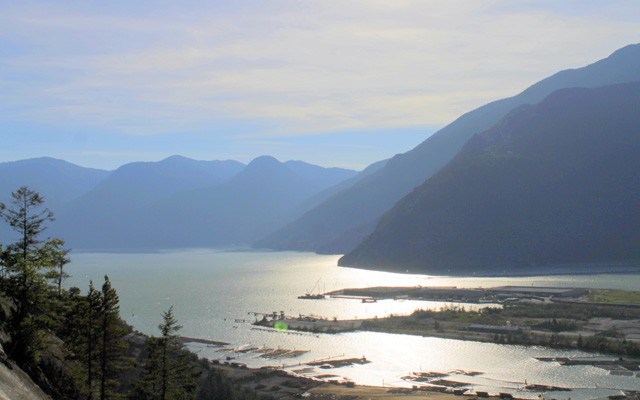It might be the Sea to Sky's most inspiring natural success story: the return of vitality to the waters of Howe Sound.
"This week alone, we've seen minke whales, humpback whales, orca whales, California sea lions — they're all there right now," said Ruth Simons, chair of the Howe Sound Biosphere Region Initiative (HSBRI), at the April 25 Committee of the Whole meeting in Whistler.
"If you were to take some time in the Sound you would be able to see all those different species, and it really is amazing, the recovery of the Sound that we've gone through."
Now, the HSBRI is hoping to add some extra focus to the Sound by having the area recognized by the United Nations Education Scientific Cultural Organization (UNESCO) as a biosphere region.
"It's an ongoing recovery, so one of the main key objectives of this is to continue and further that recovery," Simons said.
"That's the goal here, is to have a successful nomination and become Canada's 19th biosphere region."
Under UNESCO, biosphere regions represent learning sites and aim to address one of our more pressing issues: How do we maintain the health of natural systems while meeting the needs of growing communities?
Biosphere reserves serve to bring community partners together to find solutions that work for everyone — community, industry, First Nations and other agencies.
There are currently 18 such regions in Canada, including two in B.C., (both on Vancouver Island — Clayoquot Sound and Mount Arrowsmith).
"Its objectives really are to ensure that people have an ongoing connection with nature, and that the educational research part of the framework, that the logistical support that's established, is a really key aspect of that," Simons said.
A biosphere won't add new laws or regulations to the Sound, but it will bring together decades of effort by local stakeholders to strive towards a higher ideal.
"Moving forward, it's about sustainable practice, all the research and education that comes together helps proponents of new developments, of new projects, have access to data that's in one place," Simons said.
"That's an ongoing theme that we hear, is that there is lots of data but it's spread all over the organizations."
The proposed Howe Sound biosphere region stretches from West Vancouver in the south all the way to Daisy Lake in the north (the full map and more info can be found at www.futureofhowesound.org).
Several communities in the Sea to Sky corridor have offered support for the initiative, including Gibsons, West Vancouver, Bowen Island, Lions Bay, Squamish and the Islands Trust.
But key to the initiative moving forward will be gaining official support from the Squamish Nation (SN).
"They need to be supportive of it as well, and that could be what takes longer for us," Simons said, adding that the SN had expressed interest in an initial meeting.
The HSBRI is hoping to have a draft application ready by the end of the year.
At its April 25 meeting, the Resort Municipality of Whistler council passed its own motion in support of the HSBRI.
"In supporting this, I think we are providing the opportunity for an organization to pay attention specifically to the Howe Sound and I think that is an important asset for our region," said Councillor Jack Crompton.
Mayor Nancy Wilhelm-Morden said that a presentation at the Committee of the Whole earlier in the day served to provide more information, but she was still unclear on exactly what the initiative would mean.
"I hope that we get an opportunity to look at the application form, for example, before it goes into UNESCO, just so that we have a clearer idea as to what we're signing on to, because I remain a little unclear," Wilhelm-Morden said.
Coun. Sue Maxwell noted that a presentation at the Howe Sound Community Forum made it clear that the biosphere is not an additional regulatory system.
"It's not something that is saying 'yes' or 'no' to development or adding new levels of regulations, but it's a way of making sure that planning is done... between all the different communities, and looking out for sustainable development," Maxwell said.
Anyone interested in getting involved with the HSBRI — either through volunteer work or financial contributions — can email Simons at [email protected].




